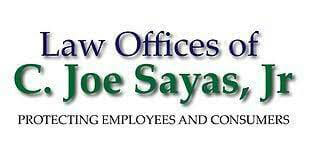‘Salaried’ employees may still be entitled to overtime pay

Q: My job title is “manager.” I work at least 10 hours per day, 6 to 7 days per week. While I supervise a few employees, I mostly do the same tasks they do. I cannot hire or fire anyone. My employer insists that since I am salaried and paid double the hourly minimum wage, I am correctly exempt from overtime pay. Is it right that just because I am paid twice the minimum hourly wage, I shouldn’t be paid overtime?
Unless you are employed in an executive, administrative, or professional capacity, California law requires that all hours worked beyond 8 in a day or over 40 in a week be paid at 1.5 times your regular rate of pay.All hours worked beyond 12 in a day must be paid at twice your regular rate of pay.
Some employers misclassify their employees as “exempt,” make them regularly work more than 8 hours per day, and pay them a flat rate salary, in the mistaken belief that by doing so, they do not have to pay the employees overtime.
But California law strictly applies the “executive,” “managerial,” and “professional” exemptions. An employee’s true exempt status is not determined by fancy titles or the employer’s arbitrary categorization. True exempt status is determined primarily by an employee’s duties.
For example, executives or managers must perform managerial, not merely ministerial, duties. These duties include managing the business, hiring, firing, and disciplining employees, deciding on employee salaries and wages, and creating work policies and procedures. These duties must take up more than 50% of their work time. If, for example, managers work 10-hour days, they must spend more than 5 hours per day on managerial work.
And aside from meeting the duties test, the manager must be paid at least twice California’s minimum wage for full-time employment (based on a 40-hour work-week). The statewide minimum wage is currently $14 per hour for employers with 26 or more employees, and $13 per hour for employers with 25 or fewer employees. Thus, the administrative, professional, and executive exemptions under state law requires employers with 26 or more employees to pay a salary of at least $1,120 per week beginning January 1, 2021. Employers with fewer than 26 employees must pay a minimum salary of at least $1,040 in 2021. Where a local ordinance mandates a higher minimum wage, this must be followed.
“Salaried” employees who work a lot of unpaid overtime hours, and who have doubts that they are really doing management or administrative tasks, should ask themselves the following questions:
- Is my main duty the management of the business or one of its departments?
- Do I regularly direct the work of two or more employees?
- Do I have authority to hire or fire other employees?
- Do I regularly exercises discretion and independent judgment?
- Do I earn a monthly salary equivalent to at least twice the state minimum wage for full-time employment?
If there is at least one “no” answer to the above questions, the employee would be smart to consult with a knowledgeable employment attorney to see if they are entitled to additional wages and other remedies. Misclassification cheats employees of their rightfully earned wages. Such wage theft should not be allowed to continue without redress.
The Law Offices of C. Joe Sayas, Jr. welcomes inquiries about this topic. All inquiries are confidential and at no-cost. You can contact the office at (818) 291-0088 or visit www.joesayaslaw.com. [For more than 25 years, C. Joe Sayas, Jr., Esq. successfully recovered wages and other monetary damages for thousands of employees and consumers. He was named Top Labor & Employment Attorney in California by the Daily Journal, consistently selected as Super Lawyer by the Los Angeles Magazine, and is a past Presidential Awardee for Outstanding Filipino Overseas.]

